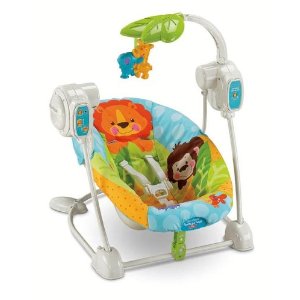Working woman

It took you years to earn a college degree and […]
It took you years to earn a college degree and even longer to receive a promotion. Just last week, your boss commended you on your dazzling work ethic and gleaming sales record. But now, one month late and a positive pregnancy test in hand, you find your normally level-headed self lost in a sea of pregnancy brain and nausea. Use these handy tips to regain control and learn how to manage working while expecting.

Once you know you’re going to be a mom, refrain from any hazards that could potentially harm your baby. (Even fields that seem safe at first glance—like photography or healthcare—can pose threats to pregnant women, so make sure you conduct a thorough evaluation.) Do you work with any toxins, such as mercury, lead, radiation, biological agents or insecticides? Do you work around intense vibrations (often found in construction or agricultural work)? Does your job require heavy lifting or excessive hours on the clock? If so, talk to your supervisor about being reassigned for the duration of your pregnancy. If your duties can’t be adapted to accommodate your expectant state, check with human resources to see if you might qualify for short-term disability.
Learn your policies
Find out the details of your maternity leave options. Talk with your boss to see if your leave is paid and how long it lasts. Some businesses will let you combine sick days and vacation time while others will allow you to use unemployment or disability.
The Family and Medical Leave Act (FMLA) allows eligible employees 12 weeks of unpaid, job-protected leave with continuation of healthcare and insurance to care for a newborn or an adopted or foster care child within the first year of joining the family. To qualify, you must have worked at your job for at least one year and logged 1,230 hours during that year. Your company must also employ at least 50 workers within a 75-mile radius. If you aren’t eligible for FMLA, check with your human resources department to find out your options.
Become familiar with your insurance policy and note which medical procedures are covered and which ones are not. Don’t forget to prepare the necessary paperwork to add a new baby to your insurance.
Some work places have on-site daycares as a convenient option for working moms. If yours doesn’t, you will need to move fast when scoping out child care centers or finding a personal nanny. Certain centers have a waiting list and others won’t take infants less than 6 months old.
Break the news
When should you announce your pregnancy and how should you do it? Stephanie Anderson, life coach and owner of the coaching practice Life’s Accessory, advises, “When telling your boss, go with your gut. If it’s easier to schedule a meeting with HR than pop over to your boss’ desk, do that.” Anderson says no matter how you decide to spill it, you need to have a plan. Come with the details hashed out. Know when you are leaving, when you will be returning, and how your work will be taken care of while you’re away. Most women choose to tell their bosses near the end of their first trimester when the chance for miscarriage has lessened. If you suffer from extreme nausea or have a job that may need a longer prep time for leave, you may decide to share the news sooner. Keep in mind there are laws in place to protect you from any unfair treatment. The Pregnancy Discrimination Act of 1978 ensures that pregnant women be treated the same as their nonpregnant counterparts.
Deal with the physical
It’s hard to concentrate on the mundane tasks of your day when all you can think about is taking a snooze. That’s why Anderson provides her clients with tips for handling the hard stuff.
Fatigue. Take naps during your lunch hour and go to bed early at night. Make sure to incorporate exercise and eat balanced mini-meals to keep blood sugar at a steady level.
Memory failure. If you’re not a “list person” already, now is the time to become one. Take advantage of the alarm and calendar on your mobile phone and don’t neglect the small stuff. Bills and doctor appointments are easy to forget when you have baby on the brain.
Morning sickness. Small meals work best and you might find ice cold drinks the easiest to manage. Stay rested and move slowly. If you find morning is your worst time, talk to your boss about adjusting your schedule until it passes.
Nosy co-workers. Give short, to-the-point answers and let everyone know that you’ll update them when there’s big news. If at any time well wishes cross the line to harassment, make sure to notify human resources so they can send out a company-wide refresher on appropriate workplace behavior.
Stress. Take breaks and walk around the halls or outside the building. Turn down overtime. Create a journal to your little one that documents how your pregnancy is going so you can keep your mind on what’s important.
Prepare for leave
When your third trimester winds down, you will want to focus on checking off as many to-dos as possible. Write instructions for the temp set to take your place, get deadline items in ahead of schedule, and make sure to wrap up loose ends before the big day.
Feeling overwhelmed?
Help is just a click away!
Occupational Safety & Health Administration
United States Department of Labor (FMLA)
U.S. Equal Employment Opportunity Commission
Government assistance programs
Child Care Network
National Institute of Mental Health







